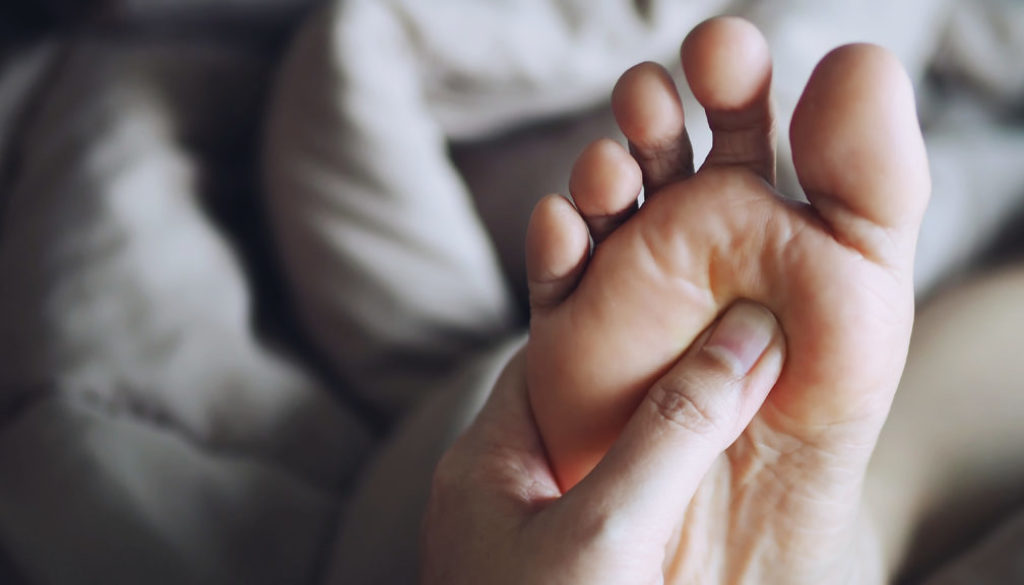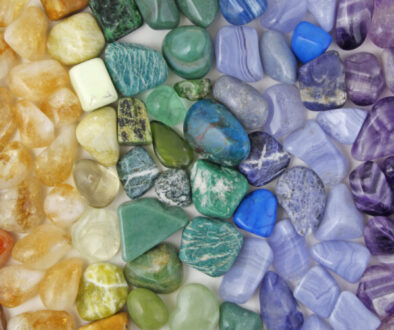Throughout my ten years of experience with Reflexology I have come across a lot of questions from clients regarding different aspects of this massage technique. We are all very curious and hungry for new knowledge when it comes to various healing therapies and it is only fair to feed that hunger! To explain what Reflexology is in very basic and short terms – it is a therapeutic foot massage. It is based on a premise that there are reflexes and areas on our feet that correspond to different organs and systems within our physical bodies. Reflexology is very non invasive and customized to the clients’ feet. Each and every foot tells me a story of your body and what possible imbalances you may be experiencing.
This is a compilation of frequently asked questions about Reflexology:
Q: My feet are very ticklish. Will I be able to have Reflexology?
A: Yes! Every single client with ticklish feet was able to receive Reflexology treatment from me and fully enjoyed it. The reason our feet are so sensitive is that there are about 7000 nerve endings (and nerve “beginnings”) located on each foot. The way of the massage is pressure and constant contact between my hands ant the client’s foot, which leaves no room for tickling.
Q: What do I wear to the Reflexology session?
A: It would be best for your own comfort to wear loose and comfortable clothing so you can fully relax. You will NEVER be asked to fully undress for Reflexology! The only items of clothing you need to remove are your shoes and socks. It is best not to wear full length pantyhose since it could be difficult to take them off and put them on afterwards.
Q: How long is the Reflexology session?
A: Reflexology session that is the most beneficial is 60 minutes in length. That is 30 minutes per foot. 30 minutes sessions (15 min per foot) is what I call a taste, because there really isn’t enough time to address all the issues in such a short time. There are also 90 minutes sessions, which allows for plenty of time to do all that needs to be done and extra for each foot. The choice remains with the clients.
Q: Does Reflexology hurt? And why?
A: The pressure applied to the foot is customized to the clients’ needs. I have noticed that with time, with each session, the same client is able to handle more and more pressure. There are sensitive reflexes and areas on the feet that may “hurt”. This is how our bodies communicate with us, letting us know that this specific spot may be congested, that there may be a blockage or the body part or organ does not function to its full potential. In those areas Reflexologist can assist in improving the flow of energy through the body’s meridians to the area affected by stress or ailment. Sometimes with the relief of stress and opening blockages there may be some sensation of physical pain as well as emotional pain. There also may be some sensitivity around reflexes where scar tissue of removed organs still remain in our bodies. These scar tissues heal much easier and faster when they are stimulated through the foot reflexes with Reflexology treatment.
Q: Is Reflexology helpful for anxiety and depression?
A: Definitely! There had been several studies conducted supporting the notion that stimulating the feet in the therapeutic manner helps alleviating anxiety, relieving stress, calming the body, and overall improving the condition of the physical and mind bodies of our beings. There is a possibility of a great emotional release within the few initial sessions. Reflexology also offers balancing the processes in our bodies: hormonal, lymphatic, circulatory, respiration and body chemistry.
Q: Can you exercise after Reflexology?
A: Strenuous exercises should be avoided for at least 24 hours. During the session a lot of areas and systems in your body gets stimulated. We do not want to overwhelm the body. Drinking lots of water and taking a warm bath with epsom salts is encouraged.
Q: What are the benefits of Reflexology?
A: One of the most important benefits is the stress removal and relaxation. We all have a lot of stress stored in our bodies just from living our daily lives and that stress is the cause of all our illnesses. It causes blockages, overworking of some of our organs and underworking of others. Reflexology, through therapeutic stimulation, returns our bodies to the state of homeostasis, the perfect balance in which our bodies work at their peak.
Reflexology also enhances circulation, normalizes metabolism, initiates detoxification processes in the body, stimulates nerve functions which allows to increase energy levels, balances the hormonal levels in the body and much more.
In my experience, Reflexology greatly improves sleeping patterns, alleviates migraines, regulates menstrual cycle, increases fertility for both sexes, removes body aches including joint pain and back pain and overall calms the body putting it into serene state.
Q: Are there any side effects after Reflexology session?
A: There are some recorded reactions after the Reflexology sessions that are usually due to stimulation of the reflexes and elimination of toxins. So far in my experience none of the effects were sever enough to cause a discomfort. Here they are:
- Feeling cold and/or tired due to relaxation with the removal of stress
- Metallic taste from cleansing of toxins within the digestive system
- Perspiration due to detoxification and enhanced circulation
- Release of excess fluid from lymphatic system
- Release of mucus from nasal sinuses
- May cause frequent bowel movements, improved digestion
- Increased frequency of urination due to the parasympathetic response to balance
- Possible headache and nausea due to detoxification
Q: Can anyone have Reflexology? I am pregnant, can I still have it?
A: Anyone from infants to elderly can have and will benefit from Reflexology sessions. It is very important to disclose all your medical information to your Reflexologist, so the session could be customized to the individual’s needs. During the pregnancy each trimester requires a different approach. Yes, it is beneficial to receive the Reflexology treatment while being pregnant, it will alleviate a lot of discomfort and aches. It is important however to inform the therapist about any existing history of pregnancies and/or miscarriages. Communication is the key.
There are some situations in which Reflexology could not be performed right away, like broken bones or major surgeries, the client would have to wait few days to allow for their bodies to be stimulated. Reflexology cannot be performed on open wounds, varicose veins, areas that has been recently badly bruised or any kind of foot area that has been badly injured within a day or two of the session.
I hope some of your Reflexology questions have been answered!
Best wishes,
Dominika Gejo, Reflexologist




